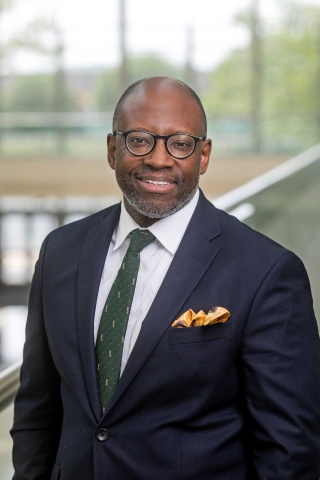Interest in building a free and virtuous society is thriving in Central America, as evidenced by a series of March conferences held in Guatemala City, Guatemala. These conferences brought together some of the nation’s most prominent religious, business, and political leaders. The conferences, organized by the Instituto para la Productividad con Responsibilidad (IPRES), the Instituto de Gobernanza, and El Shaddai Church, were designed to deal with a host of issues critical to the future of Guatemala’s social and economic development. The rule of law, social contract, private property, limited government, the social responsibility of the church, private charity, and vocation are just a few examples of the topics covered. The mere fact that these events garnered such a diverse audience of participants, of differing religious traditions and professional backgrounds, is indicative of the widespread desire to free the wealth-generating potential of the market within a supportive moral culture.
Guatemala, a nation with a gross domestic product (GDP) of around $20 billion, is still recovering from a brutal 36-year civil war, a war that ended less than a decade ago. While the country is rich in natural resources, real GDP growth has been sluggish over the past several years, averaging around three percent annually. In 1998, GDP growth in Guatemala was 5.2 percent, up from 3.1 in 1996. By the end of 2002, estimated GDP growth was only about two percent. Currently, corruption in the national government is the norm, drugs are trafficked freely throughout the country, and there is widespread poverty. As the largest economy in Central America, the economic and political situation of Guatemala affects the entire region.
Prior to the administration of the country’s present leader, Guatemala underwent significant economic and political development. Under the leadership of President Alfonso Portillo, however, the country has experienced a sharp reversal of many of the pre-1999 free-market reforms. The Portillo administration’s enactment of higher taxes and its cavalier treatment of the rule of law have stymied the nation’s economic development.
These conditions have brought about a renewed interest in the free-market reforms that characterized government policy in the 1990s. The March conferences in which I participated were designed to bring together some of Guatemala’s “best and brightest” to discuss the future of free market reforms and, by extension, the very future of Guatemala itself. The fundamental conviction of all the sponsoring organizations is that the future of Guatemala lies not with a centralized federal structure dictating economic policy, but with the economic and moral components of a revitalized civil society working in concert for the economic development of Guatemala.
Rodrigo Callejas, an attorney from Guatemala City and one of the conference organizers, provides critical insight into the changes necessary to unlock the economic and political potential of Guatemala. Callejas notes that, for Guatemala to have continued economic growth, “a national dialogue has to be set in order for all sectors of Guatemalan society to agree upon a long-term national vision, based upon a stable legal framework, rule of law, a democratic government, and a socially aware free market economic system.”
However, like other countries in the region, the desired free-market “culture” needed for long-term, systemic change in Guatemala has been deterred by an overbearing and unwieldy federal structure. This structure has made Guatemala, especially in the perception of most investors, a very unfriendly place for business. Significant structural reforms are needed, and needed immediately, if Guatemala is to survive and be competitive in the international marketplace. Callejas is convinced that new growth will ensue when Guatemala’s assets are capitalized and when there is “a single tributary scheme that will motivate investors and provide them with the stability for their investments.”
Perhaps such a possibility looms more imminently than one imagines, since federal elections are scheduled for November. The next generation of Guatemala’s leaders, like Callejas, want to improve economic conditions by seeking “to take away the overwhelming power that the government actually has, and decentralize it to the civil society.” A new vision for Guatemala is needed, continues Callejas, where “ the government has to understand that its role is to serve ... and respond to the needs of entrepreneurs in a just and efficient way.”
His is not a lone voice. Organizations such as IPRES explore and disseminate the dynamic relationship between ethics, social responsibility, and the institutions of the free-market. A fundamental principle of The Instituto de Gobernanza is to promote the principles of limited government and respect for the autonomy of civil society.
What is going on in Guatemala? There is a sense among this new generation of leaders that the country is on the verge of unprecedented social and economic gains. Free-market principles set in their proper moral framework provide these leaders and institutions with the hope that Guatemala is poised to be a model society in Latin America – a society that provides moral, social, and economic opportunities for all its citizens.
Because of the seemingly intractable nature of the aforementioned issues, the next election will prove to be one of the most important in the nation’s history. The drug trafficking network must be shut down and until it is, the overall safety of Guatemalan society remains a significant concern. The next administration must simply reconfigure the outrageous tax policy that is stifling entrepreneurs and suffocating the economy. Rampant corruption in the government must be addressed and successfully prosecuted. The next president must take the long view of political and economic reform, focusing on those reforms necessary to obtaining the long-term benefits of a free market system, set within the appropriate moral framework. We should hope and pray that the next generation of Guatemala’s leaders remains committed to pursuing a society that is both free and virtuous, for the sake of the country and the good of Central America.











